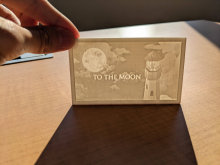Krystel Anderson
Library Blogs
Showing 241 - 250 of 2002 items

Are you someone who enjoys horror no matter the season? Well you’re in luck - Summerween is officially upon us! Popularized by the animated show Gravity Falls, Summerween invites those brave enough to indulge in all things eerie and spooky, perfect for those hot summer nights. If you’re in the mood for a scare, be warned of these chilling reads available digitally from the Library’s OverDrive collection.

3D printing a box for a print & play card game and stick lock for an xbox/switch controller
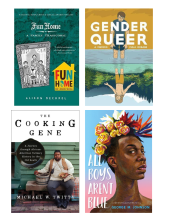
June is Pride Month! Check out some LGBTQ+ memoirs available digitally from the Library’s Overdrive collection. If you are on campus, check out physical items selected for display on the first floor of the Shapiro Library.
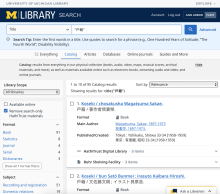
The U-M Library recently added the capability to search across Chinese-language materials in our catalog, regardless of which Chinese character set was used in the query or the record. This improvement expands to our large collection of materials and improves the user experience.
It is with pride and excitement that we announce the acquisition of the Marcelo Mirisola Papers – an archival collection that comprises 5 boxes of materials produced in the Portuguese language by renowned Contemporary Brazilian author Marcelo Mirisola during the first 15 years of his writing career (1989–2004).
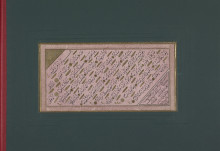
This post is by Sumeyra Dursun, 2023 Heid Fellow, from her research in the Islamic Manuscripts Collection. Sumeyra is a doctoral candidate in the history of Islamic arts at Yildiz Technical University in Istanbul.
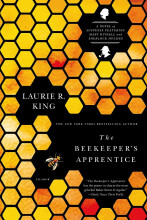
The Beekeeper's Apprentice is an outstanding mystery novel set in 1915-1919, featuring Sherlock Holmes and his new partner in crime-solving, the brilliant teenager Mary Russell. In this first novel in a long-running series, they are faced with a criminal mastermind who is targeting Holmes and everyone associated with him. This year marks the 30th anniversary of this novel, which is one of my favorite books of all time.
•
Spotlight on food history features prepared by students enrolled in Much Depends on Dinner in Winter 2024. Students worked in groups to research and write captions for food history materials in the Special Collections Research Center's Janice Bluestein Longone Culinary Archive and in the collections of the William L. Clements Library.
•
In Fall 2023, students enrolled in Dr. Margot Finn's course on the science, culture, and politics of obesity worked in groups to research and write captions for food history materials in the Special Collections Research Center. These were featured on the Shapiro Library Screens in Bert's Study Lounge and are also presented below:
